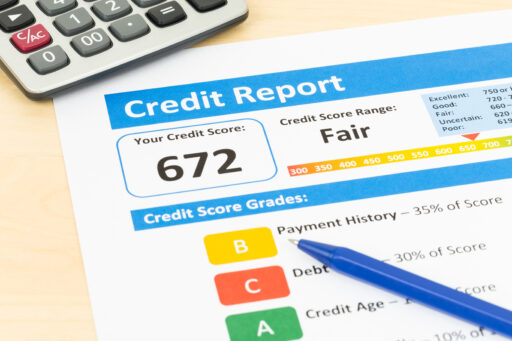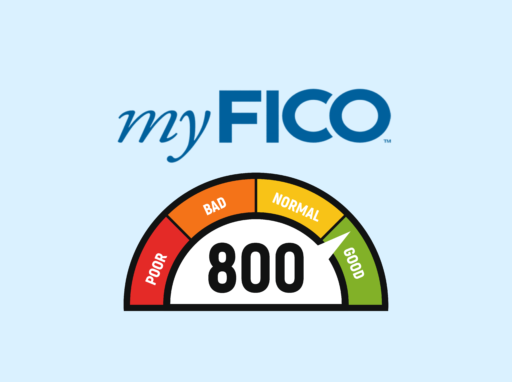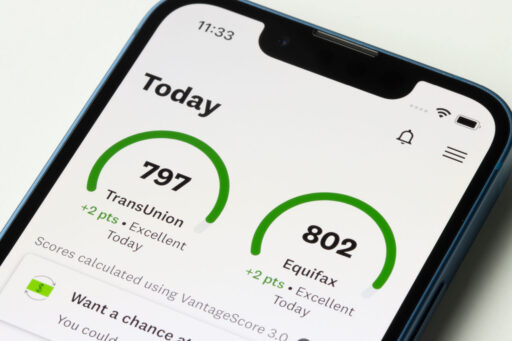*Disclaimer: This content is for informational purposes only and should not be taken as financial advice. Wallet Monkey may earn a commission from partner links in this article. Rates and offers are accurate as of publication but may change over time.
Buying a car is one of the biggest financial decisions most of us make outside of purchasing a home, of course. And if you’re planning to finance your vehicle with an auto loan, your credit score will play a major role in what kind of deal you get.
But here’s the good news: you don’t need perfect credit to drive away in a new (or used) car. Let’s break down the credit scores lenders look for, how they affect your loan, and what you can do if your score isn’t where you’d like it to be.
Table of Contents
What Credit Score Is Needed to Buy a Car?
There isn’t a single “magic number” that guarantees approval. Instead, lenders use ranges to decide the rates and terms they’ll offer. In general:
- Superprime (781–850): Best interest rates and easiest approvals.
- Prime (661–780): Competitive rates and wide financing options.
- Nonprime (601–660): Higher rates, but still possible to qualify.
- Subprime (501–600): Limited options, higher down payments required.
- Deep Subprime (300–500): Very difficult to finance without a cosigner or large down payment.
Most lenders prefer to see at least a score of 661 or higher for standard auto loan approval. But you can still get a car loan with a lower score; it just may come with higher interest.
Auto Loan Interest Rates You Can Expect By Credit Score
Here’s a snapshot of what auto loan rates can look like, based on recent industry data:
| Credit Score Range | Average New Car APR | Average Used Car APR |
|---|---|---|
| 781–850 (Superprime) | 5.18% or less | 6.82% or less |
| 661–780 (Prime) | 6.70% | 9.06% |
| 601–660 (Nonprime) | 9.83% | 13.74% |
| 501–600 (Subprime) | 13.22% | 18.99% |
| 300–500 (Deep Subprime) | 15.81%+ | 21.58% |
Note: Rates vary by lender, down payment, and market conditions. Always shop around before committing.
How Exactly Do Credit Scores Affect Auto Loans
Your credit score doesn’t just determine if you qualify; it also directly impacts the cost of your loan. Here’s how:
- Approval Odds: Higher scores make it easier to qualify with traditional lenders.
- Interest Rates: A good score can save you thousands in interest over the life of the loan.
- Loan Terms: Better scores often come with longer repayment options and lower monthly payments.
- Down Payment Requirements: With lower scores, you may be asked for a bigger upfront payment.
Essentially, the stronger your credit, the more affordable your car becomes.
How to Buy a Car With Bad Credit
If your credit score isn’t great, don’t worry, you still have options. Here are some strategies that you can use to still get an auto loan even if you have bad credit:
- Save for a larger down payment: This reduces the amount you borrow and makes lenders more willing to approve.
- Look for “special financing” dealers: Some dealerships work with subprime lenders that specialize in bad credit loans.
- Get a cosigner: If someone with better credit is willing to cosign, your chances improve.
- Consider a cheaper or used car: Smaller loans are easier to get approved.
- Explore credit unions: They often have more flexible lending requirements than banks.
Tips for Increasing Your Credit Score Being Car Shopping
If you have time before buying, here are quick ways to boost your score:
- Pay bills on time. Payment history makes up 35% of your score.
- Lower your credit utilization. Try to keep balances below 30% of your limits.
- Avoid new hard inquiries. Too many credit applications can temporarily lower your score.
- Check your credit report. Correct errors that might be dragging your score down.
- Keep old accounts open. A longer credit history works in your favor.
Even a 20–30 point boost can help secure better rates and save you a ton of money in the long run.
Does Buying a Car Help or Hurt Your Credit?
It depends on how you manage it.
- Help: Making on-time payments builds a positive history, diversifies your credit mix, and can increase your score over time.
- Hurt: Missing payments or taking on too much debt can quickly damage your score.
Handled responsibly, an auto loan can actually help your credit in the long run.
Final Thoughts
So, what credit score is needed to buy a car? Ideally, 661 or higher puts you in the “prime” category for the best rates, but you don’t need perfect credit to get approved.
If your score is lower, don’t get discouraged. There are still ways to finance a car, and with the right steps, you can improve your score before applying. Remember: the better your credit, the less you’ll pay over time.
FAQs
1. What is the lowest credit score you can have to buy a car?
You may be able to get approved with a score as low as 500, but expect higher rates and stricter terms.
2. Can I get a car loan with no credit history?
Yes, but lenders may require a cosigner, proof of steady income, or a larger down payment.
3. Is it better to get a car loan from a bank, credit union, or dealership?
Credit unions often offer the most competitive rates, while dealerships can sometimes provide convenience, but usually at higher costs.
4. How quickly can I raise my credit score before buying a car?
Small improvements can happen in as little as 30–60 days if you pay down balances and avoid new debt.
Top Relevant Articles
How to Boost Your Credit in 30 Days
Quick tips to improve your credit score fast and effectively.
Best Credit Cards for Beginners
A guide to the best credit cards for people starting their credit journey.
Best Credit Cards for Bad Credit
Explore the top credit card options for those with poor credit.
*Editorial Disclaimer: The information provided in this article is for educational purposes only and does not constitute financial, investment, or legal advice. Wallet Monkey aims to provide accurate and up-to-date information, but we encourage readers to verify details directly with financial institutions. Some of the products mentioned may be from Wallet Monkey partners, which may influence how they appear. However, our recommendations are based solely on what we believe provides genuine value to readers.





